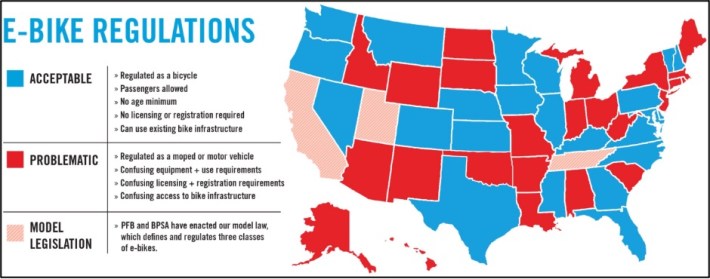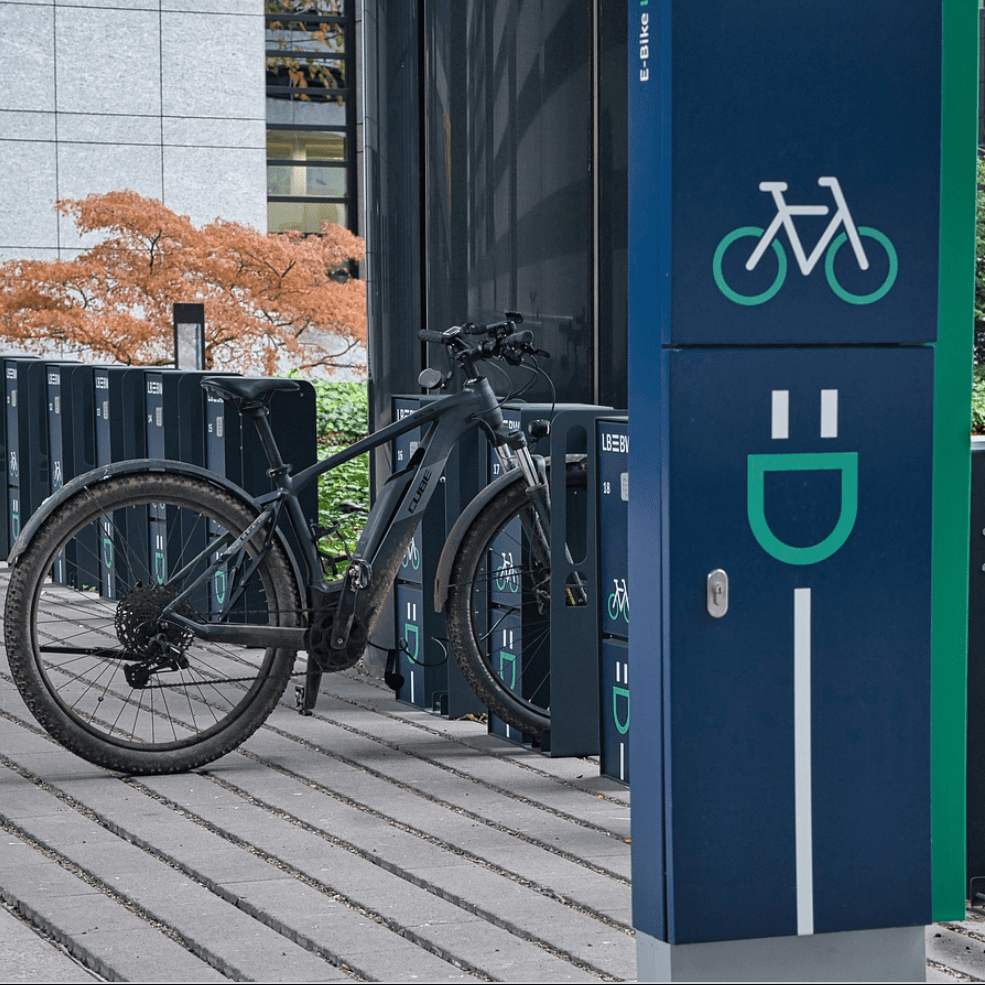As Washington gears up to pour billions into getting Americans behind the wheel of electric cars, demand for electric bicycles is soaring — and advocates say that demand would be even stronger if U.S. cities were building bike infrastructure to match the revolutionary emerging mode.
In response to a recent revelation from the U.K. Bicycle Association that retailers in Great Britain had sold an e-bike roughly once every three minutes in 2020, advocates here crunched the numbers to reveal that 600,000 e-bikes were sold last year in the U.S. — a rate of about once every 52 seconds.
That’s a slower per-capita sales rate for the United States, but it still means that two-wheeled electric vehicles outsold four-wheeled ones more than two to one last year, despite federal (and many state) subsidies for the latter mode. Unlike e-bikes, many EVs are eligible for up to $7,500 in federal tax credits, in addition to enjoying robust publicly funded roadway infrastructure and all the other non-gasoline-related ways the U.S. incentivizes private car ownership.
Of course, America’s slow shift away from gas-powered vehicles is nothing to celebrate, and even the most-avid active transportation advocate is supportive of the transition away from fossil fuels, at least in situations where cars are the only real tool for the job. But between accelerating sales in the e-bike market and the fact that roughly half of U.S. car trips are less than three miles, there’s mounting evidence that the U.S. can electrify our nation’s vehicle fleet better than simply greening car dependency — especially if policy follows market trends.
“Electric cars … receive a majority of the attention when it comes to infrastructure investments, federal incentives, and green energy grants,” wrote Micah Toll for the industry blog Electrek. “Electric bike companies are generally left to figure it out on their own, with little or no outside assistance.”
Advocates say the U.S. has a generational opportunity to change that culture, as Washington simultaneously negotiates both a major infrastructure stimulus and a baseline surface transportation bill — but not everyone’s optimistic it will be easy.
Electric car buyers lost $100 billion in proposed new tax credits as Biden’s American Jobs Plan went through the bipartisan sausage grinder negotiation process, but a similar program for e-bikes was never even proposed, despite the recent introduction of a popular bill called the EBIKE Act which gave lawmakers a readymade template for how to provide them. Electric vehicle chargers, meanwhile, are teed up to potentially receive more than $7.5 billion as part of the plan, while programs that would expand infrastructure for e-cyclists, like protected bike paths, remain vague.

Among the gaggle of surface transportation reauthorization bills under consideration in Washington, many do offer concrete funding increases for active transportation infrastructure — especially the House’s standout INVEST in America Act, which would increase money for mobility lanes and sidewalks more than tenfold. But others, like the Republican-led STARTER Act, didn’t explicitly give active modes anything, and not even the sustainability-friendly INVEST Act offers consumer incentives for e-bikes. Worse, none of the bills include mandates to introduce federal guidance on state and local e-bike laws, which are forcing the mode off of bike paths and subjecting its riders to onerous licensing and registration requirements in some communities.
Despite these barriers — or more accurately, the lack of barriers between e-bikers and drivers in most U.S. cities — the two-wheeled electric vehicle revolution is taking off. Whether transportation leaders will catch up, though, remains to be seen.






